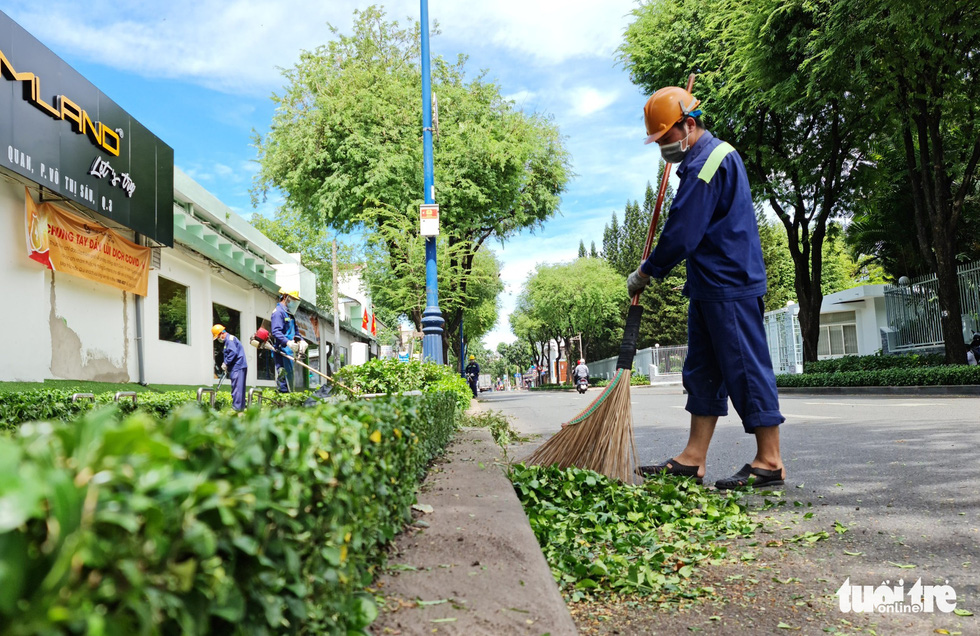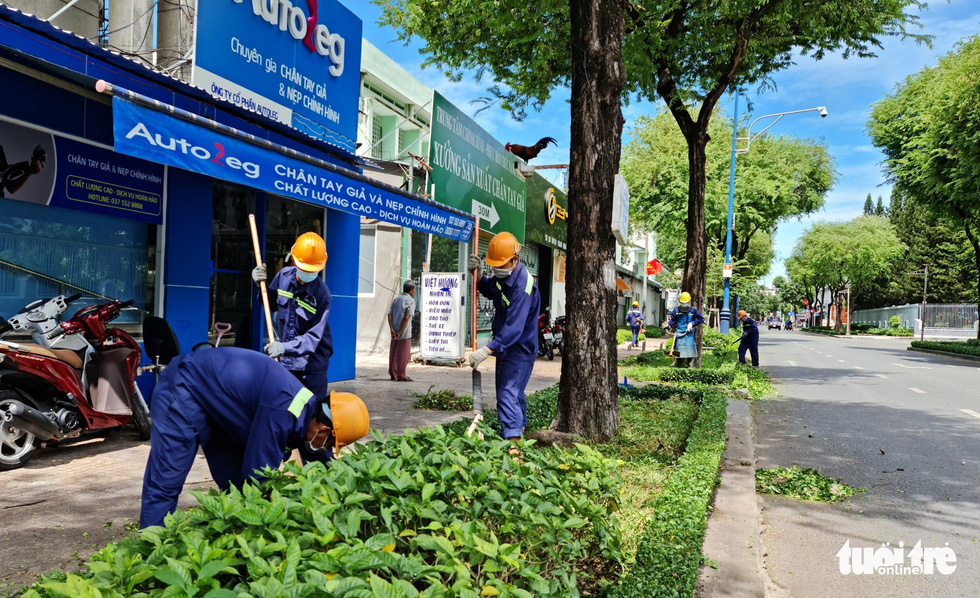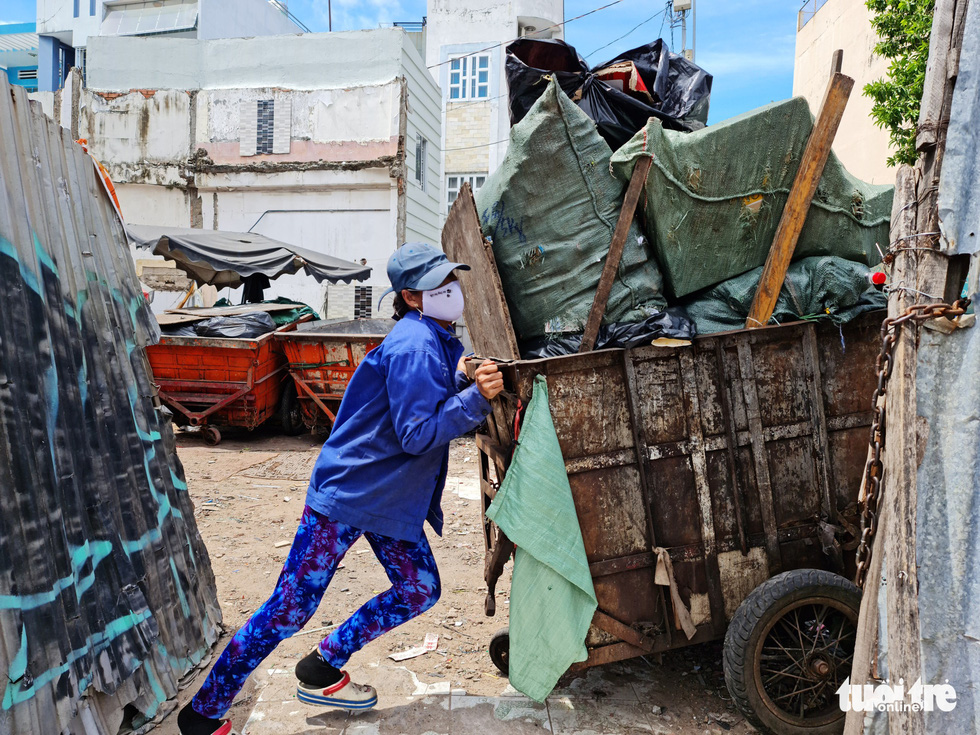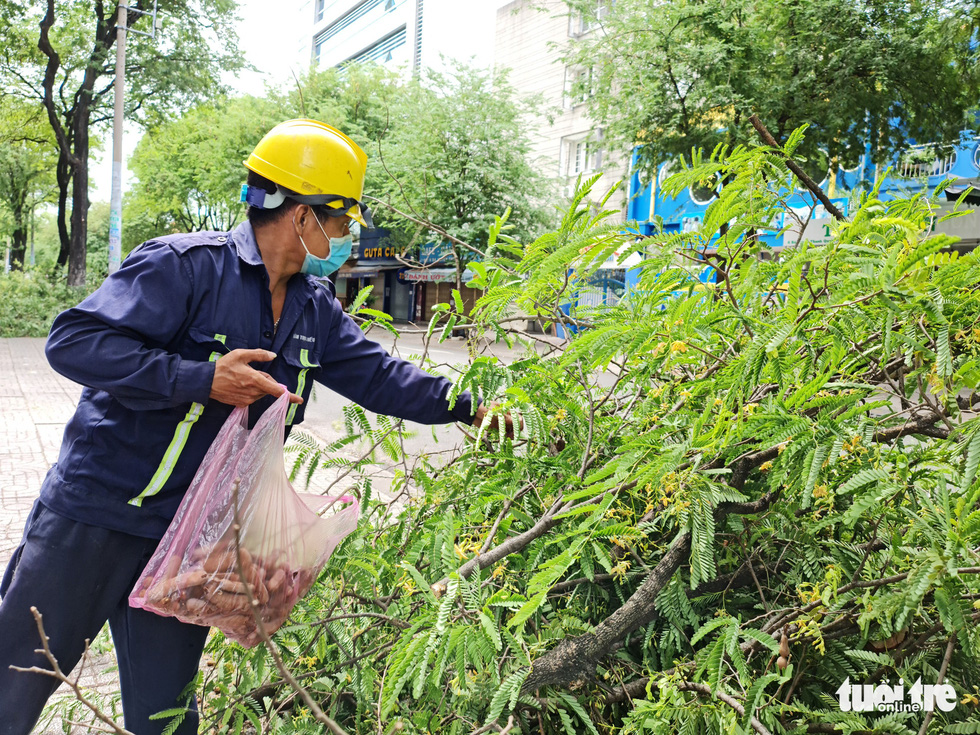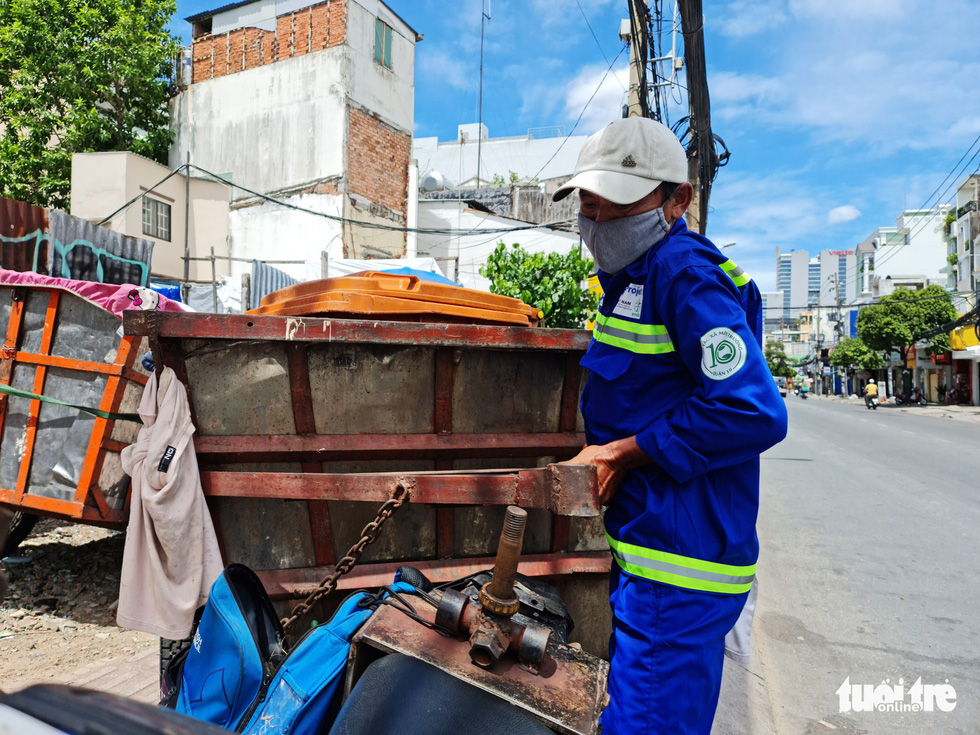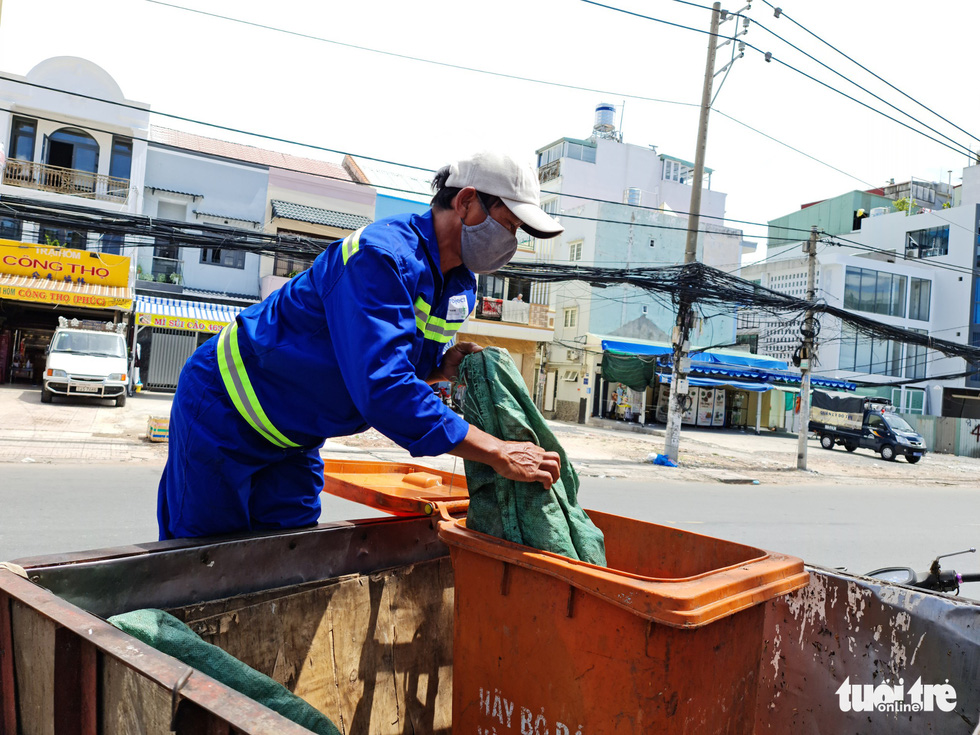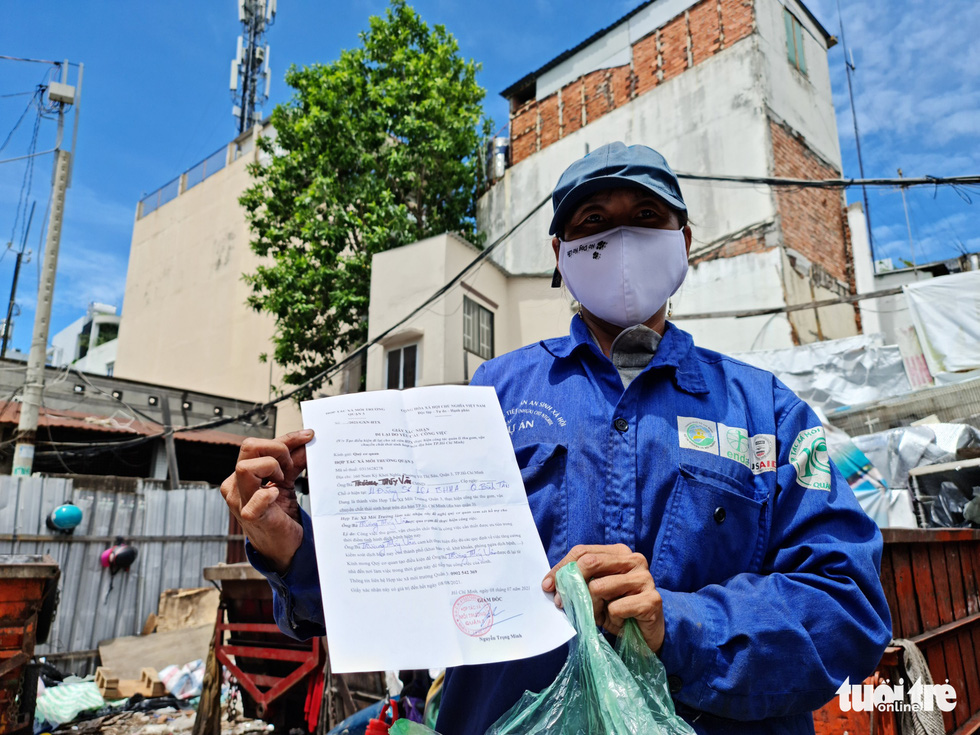Urban sanitation work tops the chart as the most taxing job

While most Ho Chi Minh City residents are huddled inside to comply with the ongoing elevated social distancing mandate, groups of blue-collar employees can still be seen working tirelessly outdoors to keep the city beautiful.
As midday summer heat bears down on Ba Huyen Thanh Quan Street in District 3, Ho Chi Minh City, the only sign of life on the typically busy street is a cohort of landscapers trimming grass and shrubs.
Since municipal authorities enacted social distancing measures which require all residents to stay home except in case of emergency, empty streets have become the norm.
However, this mandate does not apply to certain blue-collar employees.
|
|
| Landscapers trim grass on Ba Huyen Thanh Quan Street, District 3, Ho Chi Minh City. Photo: Cong Trieu / Tuoi Tre |
Tran Minh Khoa, 20, has been a trash collector for the city for over a year.
Khoa and 28-year-old colleague Nguyen Thanh Tai typically spend their days together picking up trash and leaves off the ground.
Tai said that when he first started, he considered quitting due to the dangers of working on the streets with cars and motorbikes constantly whizzing by. However, in order to make ends meet, he stuck with the job.
It is thanks to his, Khoa’s, and their coworkers’ sweat that the lawns and shrubs on Ba Huyen Thanh Quan Street are always in top conditions.
“All jobs are tiring, I feel blessed enough to have one during a hard time like this,” Khoa said.
|
|
| Truong Thuy Van, 43, a sanitation worker for District 3, Ho Chi Minh City, pushes a trash cart to a depot. Photo: Cong Trieu / Tuoi Tre |
Reduced pay
Urban sanitation work tops the chart as the most taxing job there is, according to the men and women who take on the role.
Despite the hard work, many appreciate the job for its stable paycheck.
|
|
| A landscaping worker picks tamarind fruits from trimmed branches in Ho Chi Minh City. Photo: Cong Trieu / Tuoi Tre |
Truong Thuy Van is a 43-year-old sanitation worker in District 3, Ho Chi Minh City. Her days are spent piling trash into a cart with a smile of joy on her face.
“I have already dumped the trash, but inside the cart are recyclable materials that I can sell to the scrap collectors.”
Pushing her garbage collection carts back into place, Van shared that she is thankful the extra money she makes helps her afford to feed her children a larger dinner.
However, not everyone is able to bring in extra cash.
|
|
| Le Van Phuc, a 51-year-old sanitation worker, pushes a trash cart in Ho Chi Minh City. Photo: Cong Trieu / Tuoi Tre |
|
|
| Le Van Phuc, a 51-year-old sanitation worker, takes out the trash in Ho Chi Minh City. Photo: Cong Trieu / Tuoi Tre |
|
|
| Le Van Phuc shows a paper proving his essential worker status during the COVID-19 pandemic. Photo: Cong Trieu / Tuoi Tre |
Le Van Phuc, a 51-year-old sanitation worker in Ho Chi Minh City, said his pay was curtailed after the social distancing mandate forced all non-essential shops to be closed.
As cooped-up people switched to food delivery in lieu of in-store dining, discarded food containers tend to pile higher than in the past, driving Phuc and his peers to work more hours, sometimes as late as 8:00 pm, despite receiving the same pay.
However, Phuc is not too concerned about it.
“Everyone is sequestered during this pandemic period, but they know they can count on us to keep the city clean,” Phuc said.


